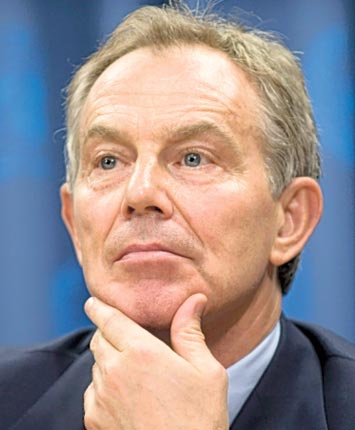Forget conspiracies: the official version is scandalous enough
The fact remains that an innocent man was hounded to his death, says Kim Sengupta

Two detailed reports published yesterday conclude that Dr David Kelly had taken his own life, his death the result of typical self-inflicted injury, without any evidence of anyone else having been involved in the killing.
This will not, however, stop the demand for more inquiries by those who hold that the scientist was the victim of state-sponsored assassination.
The conspiracy theories are not backed by any credible evidence. But they have gained widespread currency and helped to cloud the fact that Dr Kelly was driven to committing suicide, a terrible and lonely end of a decent man, after intolerable pressures were put on him by officials in the innermost circles of Tony Blair's government.
It is one of the ironies of the Kelly saga that many of those who refuse to accept that Dr Kelly could have decided to end his own life are also those bitterly critical of the subterfuge used by New Labour to justify the invasion of Iraq. Yet, by propagating tales of mysterious men in black and professional hits by a variety of suspects ranging from British intelligence to Iraqi forces, they are letting these very politicians off the hook.
What happened to Dr Kelly does not have the airport thriller ingredients the conspiracy junkies would like. It is, instead, a story of arrogance and abuse of power: of certain people's willingness – as part of a vindictive battle against the BBC and all those who questioned the provenance Saddam Hussein's supposed WMD arsenal – to manipulate and humiliate a man who had spent his life serving his country. It was also the result of an inability to comprehend that trying to strip someone like Dr Kelly of his integrity, the thing he held most dear, could have a tragic result.
The advocates of the assassination theory portray the scientist as an ardent anti-war activist who was silenced to stop him revealing the "big secret". At the age of 59 Dr Kelly was an eminent biological weapons expert, but there was nothing, in reality, to suggest that he was in possession of this crucial "smoking gun". He had already said his piece – his view that the government had grossly exaggerated the Iraqi threat in the notorious "dodgy dossier" – to BBC journalists Andrew Gilligan and Susan Watts, and was in deep trouble over this.
Before he became disillusioned by Downing Street's manufacture of evidence Dr Kelly was, as the Hutton inquiry into his death heard, a supporter of the war. He fell foul of his employers when he stopped singing from the same hymn sheet and they turned on him. According to the testimony, amid tears, of his wife, Janice, he felt "betrayed".
Dr Kelly's identity had emerged after Tony Blair had asked the intelligence services to escalate the investigation into whether Dr Kelly was the source of Andrew Gilligan's story. His name was subsequently leaked to the media by government officials. The government was determined to use Dr Kelly in its battle against the BBC. Alastair Campbell had Andrew Gilligan in his gunsight and he and Geoff Hoon, who was the then d Defence Secretary Geoff Hoon, took the decision to (in Campbell's words) "fuck Gilligan". The pressure on the scientist was intense from then on, and Mr Hoon overruled the advice of his most senior civil servant, Sir Kevin Tebbit, in forcing Dr Kelly to give evidence to the Commons Foreign Affairs Committee – where he would be questioned under full public glare. There, in an attempt to protect himself, he made a statement about his relationship with journalists which was misleading.
The interrogations of Dr Kelly gathered pace. Sir John Scarlett, then head of the Joint Intelligence Committee which produced the dossier and was later made head of MI6 by Mr Blair, wrote in a memorandum to the Cabinet Office: "Kelly needs an appropriate security style interview, I think this is rather urgent." Thus the government scientist was to face the same treatment as someone suspected of betraying national secrets to an enemy power. In another interview, he was officially reprimanded by the MoD's personnel director.
Many officials at the MoD were increasingly unhappy at the treatment being meted out to Dr Kelly. But, under orders from Downing Street, they were forced to continue phoning him about further information right until the time when he went for his final walk in the woods.
The counsel for the Kelly family said to Lord Hutton: "Your Lordship would have been moved by the evidence of Mrs Kelly and his daughter Rachel of how tired and unhappy Dr Kelly was. How he felt betrayed by the MoD ... The family invite the inquiry to find that the government made a deliberate decision to use Dr Kelly as a pawn as part of its strategy in its battle with the BBC."
Join our commenting forum
Join thought-provoking conversations, follow other Independent readers and see their replies
Comments
Bookmark popover
Removed from bookmarks